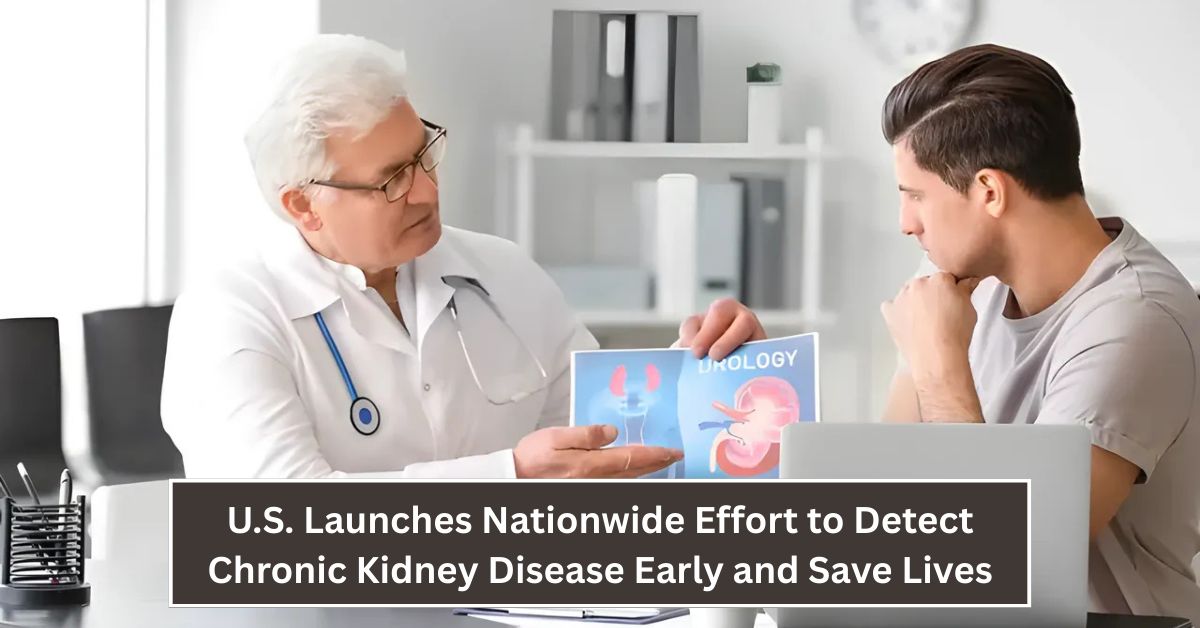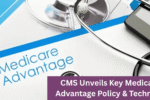The United States has initiated a comprehensive national screening campaign aimed at identifying chronic kidney disease (CKD) before it progresses to advanced stages. This move addresses a significant public health concern, as many individuals remain unaware they have CKD until symptoms worsen. Early detection can significantly improve health outcomes and reduce the burden on healthcare systems.
With millions at risk due to factors such as diabetes, hypertension, and lifestyle habits, the campaign prioritizes widespread education and access to testing. By focusing on prevention and early intervention, the initiative hopes to empower younger populations to take charge of their kidney health through regular screening and informed lifestyle choices.
Understanding Chronic Kidney Disease and Its Impact
Chronic kidney disease is a condition characterized by the gradual loss of kidney function over time. The kidneys’ role in filtering waste and excess fluids from the blood is critical to maintaining overall health. When kidney function declines, harmful toxins accumulate, leading to serious health complications.
CKD often progresses silently with minimal symptoms in its early stages, making it difficult for individuals to detect without medical testing. It is linked to increased risks of cardiovascular disease, nerve damage, and kidney failure, which requires dialysis or kidney transplantation. The early identification of CKD is key to slowing disease progression and enhancing quality of life.
Key Statistics Highlighting the Need for Screening
| Aspect | Statistic |
|---|---|
| Estimated adults in the U.S. with CKD | Over 37 million |
| Percentage unaware of their condition | Nearly 90% |
| Common underlying risk factors | Diabetes and high blood pressure |
| Annual healthcare costs related to CKD | Exceed hundreds of billions |
These numbers illustrate a vast population potentially at risk without adequate diagnosis and treatment. The screening campaign is designed to bridge these gaps in awareness and healthcare access.
Details of the National Screening Campaign
The campaign involves partnering with community health centers, educational institutions, and workplaces to offer free or low-cost kidney health screenings. These screenings typically include blood and urine tests to monitor kidney function and detect abnormalities early.
Alongside screenings, the program provides educational materials on risk factors, prevention strategies, and lifestyle modifications. The integration of digital tools, such as online risk assessment quizzes and mobile apps, helps younger demographics engage actively in their health monitoring.
Why Early Detection Matters for Young Adults
Although CKD is often associated with older adults, younger individuals are increasingly affected due to rising rates of diabetes, obesity, and hypertension. Early detection allows younger patients to implement changes in diet, exercise, and medication management that can delay or prevent disease progression.
Moreover, young adults equipped with kidney health knowledge can advocate for themselves and maintain proactive healthcare habits. The campaign’s message emphasizes routine screening as part of standard health check-ups, aligning with younger generations’ preference for preventive care and wellness.
Risk Factors to Watch and Manage
Several modifiable and non-modifiable risk factors contribute to the development of chronic kidney disease. Understanding these helps individuals assess their likelihood of CKD and take preventive steps.
| Risk Factor | Description |
|---|---|
| Diabetes | High blood sugar can damage kidney filters over time |
| Hypertension | Elevated blood pressure strains kidney blood vessels |
| Family History | Genetic predisposition can increase risk |
| Age | Risk increases with age, but younger people are not exempt |
| Obesity | Contributes to diabetes and hypertension |
Addressing these risk factors through lifestyle changes and medical management is crucial in reducing CKD incidence.
How Screenings Are Conducted and What to Expect
Kidney health screenings are simple, quick, and minimally invasive. Typically, a screening will include a urine test to detect protein or blood, a blood test to measure creatinine levels and estimate kidney function, and blood pressure measurement.
Health professionals analyze these results to identify signs of kidney impairment. When abnormalities are found, individuals receive recommendations for follow-up care, lifestyle modifications, or specialist referrals.
Empowering Communities through Education and Resources
The campaign extends beyond testing by providing accessible resources such as workshops, webinars, and community outreach programs. These initiatives focus on kidney health literacy, nutrition, physical activity, and disease management strategies.
Accessible language, relatable messaging, and culturally sensitive materials aim to engage diverse communities, particularly younger adults who may underestimate their CKD risk. These efforts help dispel myths, encourage health screenings, and foster supportive environments.
Technology’s Role in Enhancing Awareness and Engagement
Digital platforms are central to the campaign’s strategy, leveraging social media, apps, and online portals to reach a broad audience. Interactive tools enable users to assess their CKD risk and access personalized recommendations.
By integrating technology, the campaign meets younger audiences where they spend time and helps them maintain ongoing kidney health monitoring. Push notifications, educational videos, and virtual support networks create a comprehensive support system.
The Broader Impact of Early CKD Intervention
Early intervention through screenings can dramatically reduce the progression to kidney failure, thereby decreasing the need for costly treatments like dialysis and transplantation. Additionally, successful management of CKD lowers the incidence of heart disease and stroke, which are closely linked.
This proactive approach not only improves individual health outcomes but also lessens the economic strain on the healthcare system. Promoting kidney health aligns with broader public health goals of increasing longevity and quality of life.
How Individuals Can Participate and Take Action
Anyone concerned about their kidney health should speak with their healthcare provider about screening options. Participating in local screening events or using online risk assessments are practical first steps.
Healthy habits such as maintaining a balanced diet, exercising regularly, managing blood sugar and blood pressure, avoiding excessive use of painkillers, and staying hydrated support kidney function. By embracing these habits, individuals can reduce their CKD risk significantly.
Looking Ahead: Continued Efforts to Combat CKD
The national screening campaign marks a pivotal step in addressing chronic kidney disease, yet ongoing commitment is essential. Future initiatives will focus on expanding access, refining screening technologies, and tailoring interventions for high-risk populations.
Investment in research and public education will drive innovations in prevention and treatment. As awareness grows, a culture of kidney health consciousness can take root, benefiting generations to come.




